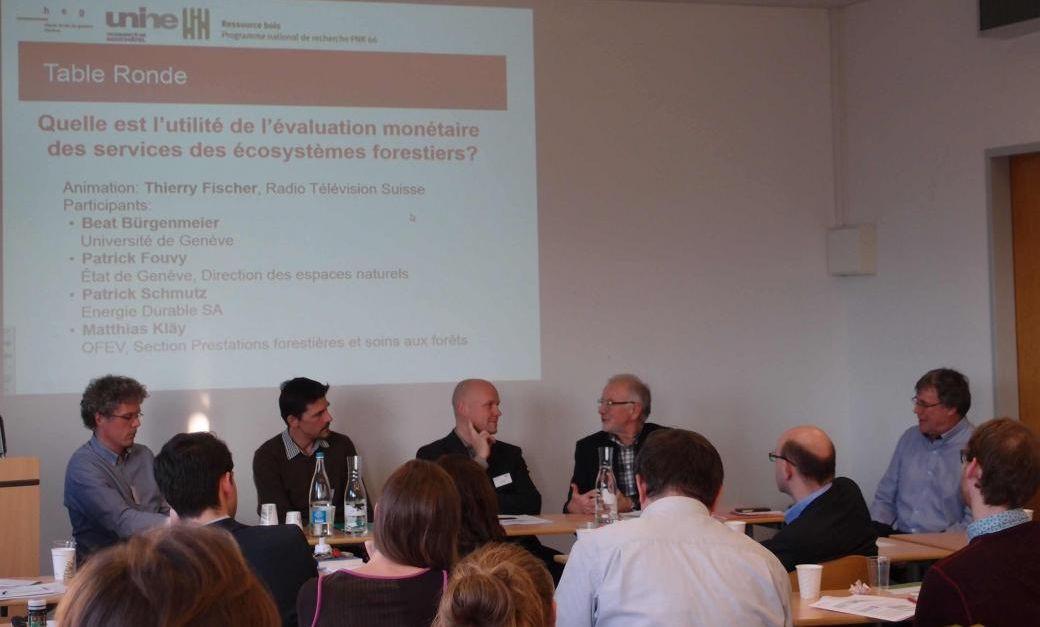Between utilisation and speculation – Benefits and risks of monetising forestry services

The workshop held in January and initiated by the Geneva School of Business Administration (Haute Ecole de Gestion, HEG) on “Economic valuation of forest ecosystem services” marked the conclusion of a research project implemented under the leadership of Milad Zarin-Nejadan and Andrea Baranzini as part of NRP 66.
On 29 January 2016, HEG Geneva issued an invitation to a workshop to discuss the different methods for and results from economically evaluating forest functions and their impact on forestry and resources policy in industrialised countries. More than 60 delegates from Switzerland and abroad, representing research, politics and industry, took part in the event.
The densely packed programme included a total of eleven presentations on the economic utilisation of the forest. The range of topics covered extended from assessment of the different natural and man-made avalanche protection measures and the benefits of the forest for our drinking water supply through to the attraction of forests as recreational areas.
With regard to Switzerland, the study prepared by Nicolas Borzykowski, Andrea Baranzini and David Maradan (HEG Geneva) dealt with the issue of sustainable forest management. This study measured the extent to which the general public is willing to pay for a ten percent increase in the forest reserve (one of the declared objectives of the Swiss government’s 2020 Forestry Policy). According to the study, the average amount that people are willing to pay is between CHF 400 and CHF 470 per year. The investigations form part of the research project entitled "Understanding the market of raw wood: Supply and demand aspects", which was headed by Milad Zarin-Nejadan as part of NRP 66.
The event culminated with a round-table discussion involving Beat Burgenmeier (University of Geneva), Patrik Fouvy (Canton of Geneva), Patrick Schmutz (Energie Durable SA) and Matthias Kläy (Federal Office for the Environment), and moderated by Thierry Fischer (journalist with RTS). During the plenary session, reservations were expressed about simply "translating" intangible goods into economic assets, with reference being made to the danger of speculating with the forest as a resource. However, the delegates agreed that monetisation can help as a means of effectively communicating to a wider audience the diverse ecosystem services that the forest provides.
- Review of workshop by Lucienne Rey (PDF, 123 KB) (PDF)
- Conference programme and selected presentations
- Dialogue field 4: Provisioning and sustainable use of wood
